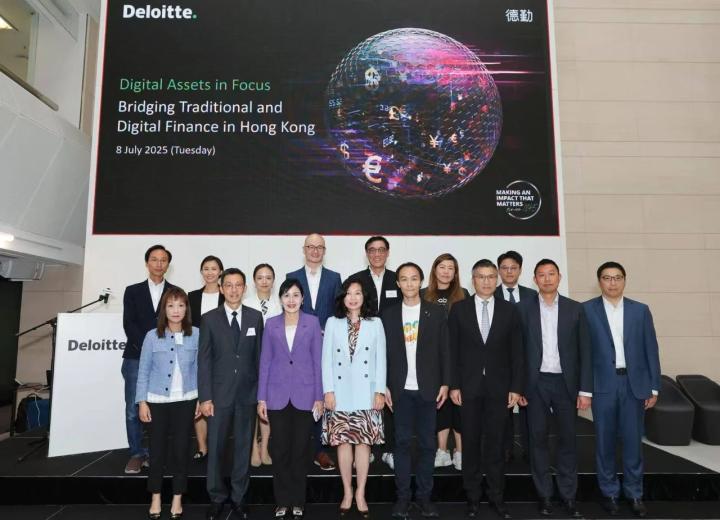JPMorgan Chase CEO Jamie Dimon's recent candid comments at the Irish Department of Foreign Affairs highlighted a heavy reality on the global economic stage - Europe is gradually losing ground in competition with the United States and Asia. Dimon's remarks not only reignited attention on EU economic integration and institutional reforms but also emphasized the market's excessive confidence in the global economic direction.
Table of Contents
ToggleEurope's GDP Share Dropped from 90% to 65%, Dimon Speaks Directly: This Won't Work
According to the Financial Times, Dimon candidly pointed out in his speech that Europe's economic performance is falling behind. He stated: "Europe's GDP share relative to the United States has declined from 90% to 65% in the past 10 to 15 years. This is not good."
Dimon further emphasized that US companies have scale advantages and global competitiveness, while European enterprises, despite their potential, are gradually losing their leading position. "We have a large and strong market, our companies are very successful and have global scale. Europe once had these advantages, but now they are becoming fewer and fewer."
"Single Market Should Be Fully Integrated": Institutional Fragmentation Drags Down Europe
Dimon believes that if Europe wants to revive its competitiveness, it must complete a true single market integration. He pointed out that this involves not only trade liberalization but also banking unification, common financial disclosure rules, transaction transparency, and climate policy standards. "Everything should be part of a single market," he told the Irish Examiner.
In fact, European leaders and business circles have long called for accelerating the integration of capital markets and banking unions, while simplifying complex tax and regulatory frameworks to inject more momentum into the regional economy.
Geopolitical Risks Escalate, Europe Lacks Critical Sovereign Capabilities
Europe's obvious lack of autonomy in strategic areas such as energy, critical minerals, data centers, satellite communications, and digital services is also considered a key factor weakening its competitiveness. As US-China trade relations become increasingly tense, Europe's vulnerability is further amplified, highlighting the urgency of strengthening regional sovereignty and strategic resource management.
Investors Optimistic About Europe in First Half, But Challenges Remain Heavy
Despite this, Europe's market performance in the first half of 2025 was surprisingly good, attracting significant investor attention. Market sentiment turned more optimistic, partly due to Germany's fiscal stimulus measures, increased defense spending, falling interest rates, and relative political stability in the region. These factors not only drove a strong stock market rebound but also attracted capital inflows from private equity funds seeking value investment opportunities.
However, Dimon reminded that the EU still faces challenging tasks, including implementing economic growth-friendly reform policies and stabilizing relations with the United States, its largest trade and investment partner. As of Friday morning, the EU and US tariff agreement had not yet reached a concrete consensus.
US Market Reacts Coldly to Tariff News, Dimon Warns of Overconfidence
Regarding the latest tariff policy announced by US President Trump, Dimon also expressed concerns about the market's reaction. Trump this week announced a 50% tariff on Brazilian imports, a 50% tax on copper, and even threatened punitive tariffs of up to 200% on pharmaceuticals.
Despite these measures potentially putting pressure on inflation and economic growth, the market reaction remained relatively calm, with the S&P 500 and Nasdaq indexes reaching new highs on Thursday. However, market sentiment was slightly weak on Friday morning.
Dimon stated that the market has become somewhat "numb" to such news, and investors are falling into a "complacent mood".
Inflation Unresolved, Interest Rates Might Rise Again? Market Underestimates Risk
Regarding inflation and interest rates, Dimon also poured cold water. He pointed out that although the market generally only believes there is a 20% probability of another rate hike, he believes the actual risk should be "between 40% and 50%", which will pose serious concerns for investors.
In fact, Dimon warned in a conference last month that the US economy might enter a recession in the next few months, and "real data is likely to deteriorate quickly."
Risk Warning
Cryptocurrency investment carries high risks, and its price may fluctuate dramatically. You may lose all your principal. Please carefully assess the risks.
Japanese real estate company Gates Inc. will collaborate with Japanese game chain Oasys to launch Japan's largest real estate tokenization project, with the first phase targeting a property in a prime Tokyo location worth $75 million. The future goal is to tokenize approximately 1% of real estate in Japan, with an estimated scale of $20 billion.
[The rest of the translation follows the same professional and accurate approach, maintaining the specific terminology like Oasys, Token, etc.]According to a report by Deloitte on 4/26 this year, the global real estate tokenization market is expected to exceed $4 trillion by 2035, compared to less than $300 billion in 2024, representing an explosive market with a compound annual growth rate of over 27%.

Risk Warning
Cryptocurrency investment carries high risks, and its price may fluctuate dramatically. You may lose all of your principal. Please carefully assess the risks.







